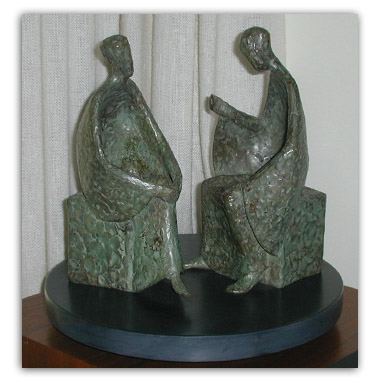Practical issues
I am fully booked, cannot take on new clients. I am located centrally in Reykjavik, at Þórunnartún 6. Sessions are 60 minutes once a week or less frequently depending on the individual´s interest, needs and financial capacity. I also offer online sessions. My fees are 22.000 IKR with a raise to be expected yearly around October 2024. Most labour unions partly refund session for their members: please check your union. I expect my clients to accept this framework for our work.
I seek regular consultations, personal therapy and training, all important quality measures in psychotherapy. Contrary to most of the western world, Psychotherapy is not a recognized profession in Iceland so Icelandic licensing is not available. My practice is registered at the Directorate of Health. I am regulated by the SALM code of ethics (in Icelandic only) that are in line with the codes of the European Association for Psychotherapy (EAP) and as a Registered Nurse I am regulated by the public system in Iceland and the ethical codes of Icelandic Nurses.
Emergency services: I do not offer emergency services. Should you need help urgently now in this very moment, there are several places you can contact. Please do not hesitate to reach out to them – they are there for you, now this minute.
 Individual therapy for adults
Individual therapy for adults
I work with people who are burdened by a lack of self-worth, guilt, self-criticism, anger, shame, loneliness, emptiness, sense of rejection, excessive responsibility and oppression. I work with people who experience loss, problems in their relationships, depression, anxiety and fear. I work with issues underlying addiction and co-dependence. I help adults to work through childhood attachment trauma of abuse, bullying, neglect and unmet needs as well as traumas of adulthood. I work with people who experience existential or identity crisis and burnout, are insecure in who they are or what they want in life. I am willing to go with my clients into their deep dark and perhaps resented parts in a safe, respectful, accepting manner at their own pace.
How I work
Integrative Psychotherapists use methods and assumptions of various Humanistic approaches and aim for inner harmony.
My approach to psychotherapy is IFS (Internal Family System), I am influenced by EFT (Emotion Focused Therapy) the work of Bessel Van der Kolk, Gabor Maté, Janina Fisher and Neurobiology and use EMDR at times. My initial integrative training was mainly attachment theory and Gestalt focused.
In line with IFS we explore personal (personality) parts, through experiencing, understanding, befriending and helping them to let go of the burdens they hold. Every person has an undamaged inner Self; a healing power, self-leadership abilities like calmness, clarity, trust, curiosity and self-compassion, qualities that are increasingly uncovered during therapy. I work with the present and explore how it might be affected by the past, through the therapeutic relationship within safe ethical boundaries at a pace suitable for each client. I promote collaborative work where I see both me and my clients as active, knowledgeable and responsible participants. I am willing to go with my clients into their deep dark and perhaps resented parts in a safe, respectful, accepting manner.
I encourage my clients to develop a routine of self-care between sessions aimed at forming a compassionate relationship with themselves by being curious, accepting and caring. This is mainly done through exercises like noticing and staying with own inner states, taking care of own parts, and perhaps also meditations and outdoor activities and strengthening relations. Inner well-being is increased in the same manner as muscular strength: by regular practice that increases the capacity to handle distressing situations when they arise.
More about my approaches
Internal Family System Therapy
is an evidence based trauma approach that is recommended by the world-leading experts Gabor Maté and Bessel van der Kolk. Here is a 5 min. introductory video for those who have never heard of IF and here is an 11 mín introduction from the founder, Richard Schwartz. IFS views a person as containing an ecology of relatively discrete minds (parts, aspects of personality), each of which are designed to play a valuable role in the person´s life. Life experiences can force the parts out of their roles and reorganise the inner system in distressing and polarised ways. While the intentions of the parts are only good, their methods are harmful in their extreme forms. Parts are helped to let go of their extreme behaviour so our Self can become (again) our internal leader and healer and IFS becomes a way of life. Here the founder of the model, Richard Schwartz, explains IFS; video and text. Here a new study on the effectiveness of IFS therapy for PTSD is published and another on internet addiction. On the website of the IFS Foundation for Self Leadership you find more.
is an evidence based humanistic approach that views emotions central in human functioning and therapeutic change, summarised as “changing emotions with emotions“. Here is how ISEFT defines it and here Leslie Greenberg explains it and why it works.
EMDR – Eye Movement Desensitization and Reprocessing
is an evidence based trauma therapy. Eye movements, directed by the therapist, are used to help resolve unprocessed traumatic memories in the brain. The traumatic event will still be remembered but without the inhibiting emotions and thoughts associated with it. Kati Morton explains the process and why it works in a short video

